Publications
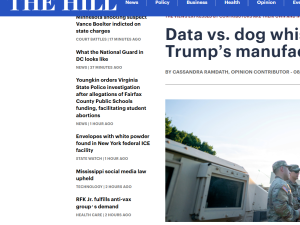
In her op-ed “Data vs. dog whistles: Debunking Trump’s manufactured DC emergency,” CICS Director of Research and Evaluation Cassandra Ramdath argues that President Trump’s declaration of a crime emergency in Washington, D.C. is political theater unsupported by data, noting that violent crime is actually declining and advocating for community investment over militarized responses.

In June 2023, CICS and the Policing Project co-hosted a national convening at Georgetown Law School. The convening brought together over 150 practitioners, community members, researchers, experts, and other stakeholders from around the country to learn, share information, problem-solve, and innovate. You can read about the panels, workshops, and key takeaways in this report.
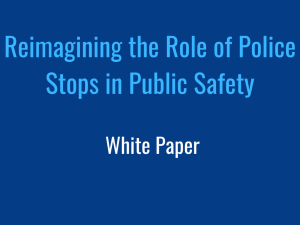
CICS Faculty Co-Director Christy Lopez contributed to this white paper, which was informed by a workshop series on Reducing Harm through Research, Policy, and Practice. As part of the workshops, Professor Lopez facilitated a panel discussion on how to make alternatives to policing work in the D.C. context, and what the measures of success for public safety should be.
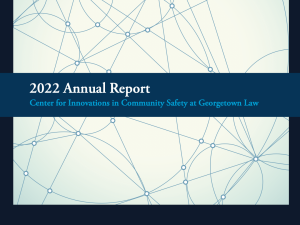
Our 2022 Annual Report provides a snapshot of CICS's growth over the past year, including updates on our flagship programming as well as our upcoming initiatives on Alternative First Response and Hospital-Based Intervention Programs.

CICS Executive Director Tahir Duckett and Lauren Young (L’23) examine the community safety implications of addressing jail overcrowding in Fulton County, Georgia by expanding the County’s capacity to incarcerate.
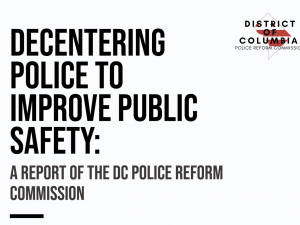
CICS Faculty Co-Director, Professor Christy Lopez, is one of twenty members of the D.C. Police Reform Commission, which released a 259-page report in April 2021, providing recommendations to improve public safety.
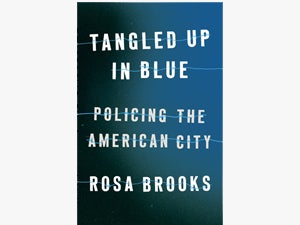
Professor Rosa Brooks was a sworn, armed reserve police officer with the Washington, DC, Metropolitan Police Department from 2016-2020. In her most recent book, "Tangled up in Blue", Brooks writes about her experience with MPD and examines the complications of American policing.
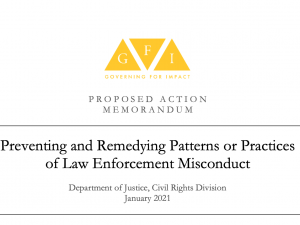
Professor Christy Lopez focuses on three actions that the Biden administration can take immediately to restore the Division's police misconduct enforcement and ensure that the Division leads on this issue.
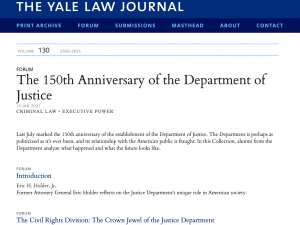
Professor Christy Lopez argues that while much attention is being paid to the importance of reversing the harms of the Trump Administration, it is important to look beyond simply restoring the enforcement energy and ethos of the previous Administration.
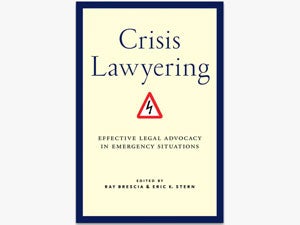
Professor Christy Lopez joins other contributors in Crisis Lawyering, which shines a light on the emerging field of law dedicated to responding to and resolving the complex crises of the twenty-first century.
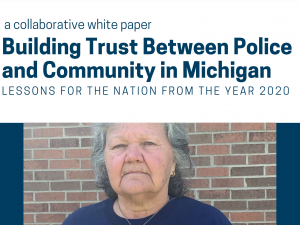
Professor Christy Lopez's contribution to this white paper, "Changing Mindsets and Preventing Harm", discusses how the ABLE Project can prevent policing harm while helping to transform policing culture.
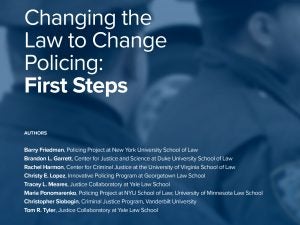
Professor Christy Lopez joins a group of law school faculty to offer immediate, concrete steps that federal, state, and local governments can take to address enduring problems in policing.
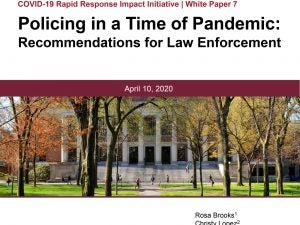
Professors Rosa Brooks and Christy Lopez note the novel law enforcement challenges created by COVID-19 and describe the approaches police must take in order to serve their traditional public safety function.
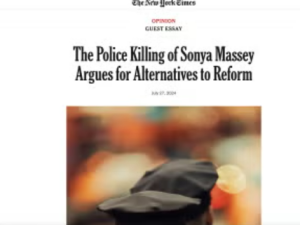
In this op-ed, published on July 27, 2024, CICS Executive Director Tahir Duckett argues for the need to shift a meaningful number of the 60 million police contacts each year to unarmed responders who can better handle calls for help that don't need a police response. He also urges policymakers to focus more resources on community violence intervention that can help prevent violence before police need to get involved.
